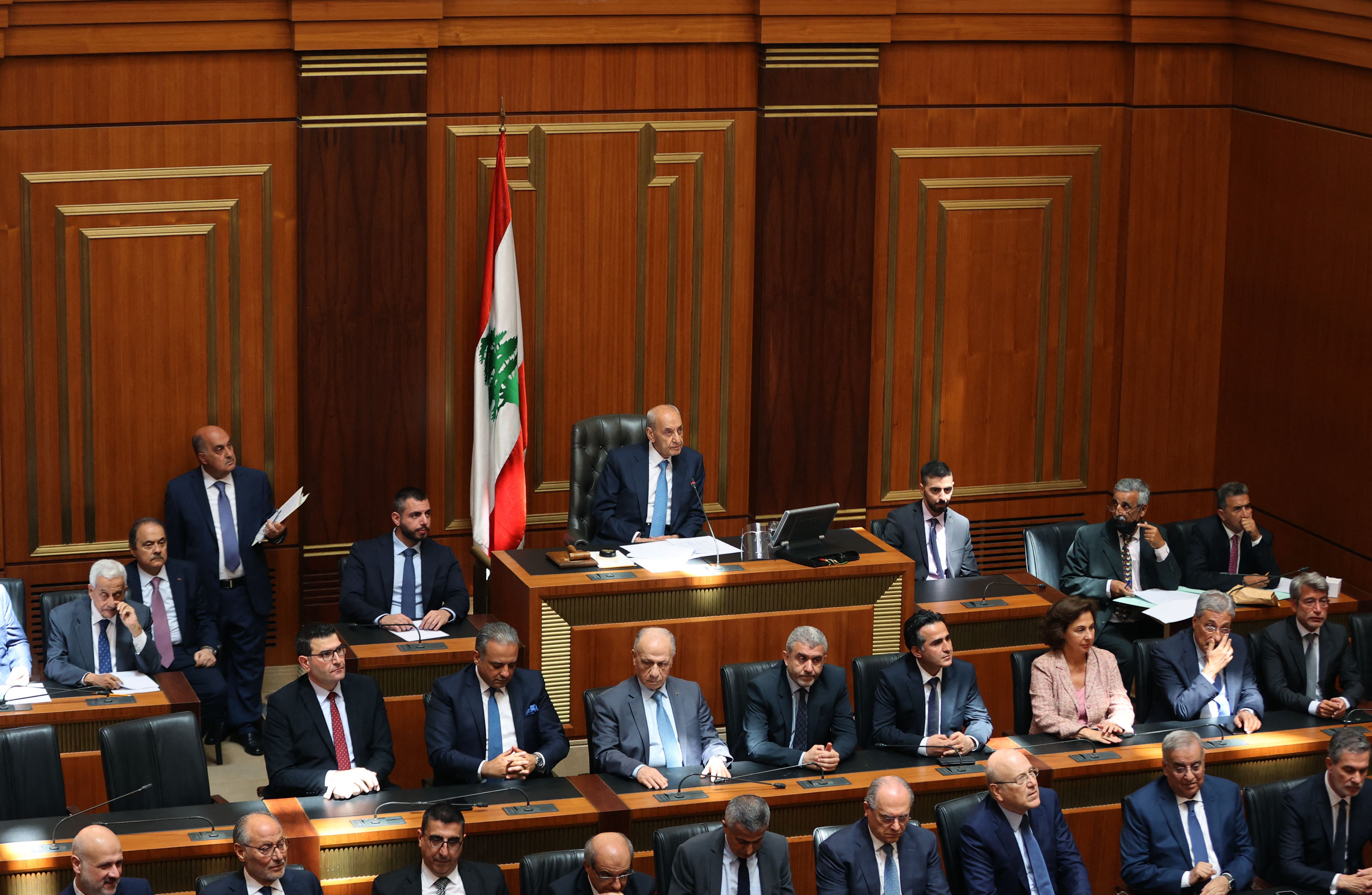Since the end of October 2022, Lebanon has not had a president despite suffering from a persistent and worsening politico-economic crisis characterized by extreme poverty, uncertainty, and state failure. Can diplomatic discussions in Paris between the United States, France, Saudi Arabia, and Qatar along with renewed international attention to Lebanon’s government paralysis and four-year crisis help surmount the roadblocks preventing the election of a president, formation of a government, and implementation of key reforms to stabilize the deteriorating situation?
The Middle East Institute invites you to join a panel discussion that will unpack the drivers behind Lebanon’s ongoing presidential vacuum as well as the opportunities for local and international stakeholders to help break the deadlock.
Speakers
Paul Salem
President and CEO, Middle East Institute
Karim Emile Bitar
Non-Resident Scholar, Middle East Institute
Mohanad Hage Ali
Director of Communications; Senior Fellow, Malcolm H. Kerr Carnegie Middle East Center
Najat Aoun Saliba
Lebanese Member of Parliament
Melham Khalaf
Lebanese Member of Parliament
Maha Yahya, moderator
Director, Malcolm H. Kerr Carnegie Middle East Center
Detailed Speaker Biographies
Paul Salem
Paul Salem is president and CEO of the Middle East Institute. He focuses on issues of political change, transition, and conflict as well as the regional and international relations of the Middle East. Salem is the author and editor of a number of books and reports. Prior to joining MEI, Salem was the founding director of the Carnegie Middle East Center in Beirut, Lebanon between 2006 and 2013. From 1999 to 2006, he was director of the Fares Foundation and in 1989-1999 founded and directed the Lebanese Center for Policy Studies, Lebanon's leading public policy think tank.
Karim Emile Bitar
Karim Emile Bitar is Associate Research Fellow at the Institute for International and Strategic Affairs in Paris (IRIS) and Editor of French monthly public affairs magazine L’ENA hors les murs. He is an associate professor of international relations at Lebanon’s Université Saint-Joseph (USJ), an associate fellow at the Geneva Center for Security Policy (GCSP), and a research associate at Brussels’ Institut Medea. He is a professor of international relations and of history of political thought at several French Grandes Ecoles. He frequently testifies before the Foreign Affairs Committees of the French and European parliaments.
Mohanad Hage Ali
Mohanad Hage Ali is the director of communications and a senior fellow at the Malcolm H. Kerr Carnegie Middle East Center in Beirut where his work focuses on the shifting geopolitics and Islamist groups after the Arab Uprisings. Hage Ali teaches politics at Emory University in Atlanta, Georgia, and has lectured at the Lebanese American University in Beirut. In his work, Hage Ali focuses on Levant politics. Prior to Carnegie, Hage Ali worked as a reporter at al-Hayat newspaper in London, and as an editor in chief of NOW Arabic in Beirut, where his work focused on political Islam and Iraq.
Najat Aoun Saliba
Najat Aoun Saliba is a Lebanese Member of Parliament. She is also Professor of Analytical Chemistry and an atmospheric chemist at the American University of Beirut (AUB). Prior to serving as an MP, she was the Director of AUB's Nature Conservation Center from 2013 till 2020. MP Saliba is also the co-founder and director of Khaddit Beirut (an initiative launched after Beirut's 2020 explosion) and the founder and director of the Environment Academy (an initiative created with the support of the World Health Organization).She was appointed a laureate of the L'Oréal-UNESCO For Women in Science program in 2019.
Melham Khalaf
Melhem Khalaf is a Lebanese Minister of Parliament, elected in 2022. He was also President of the Bar Association in Beirut from November 17, 2019 to November 21, 2021. A university professor and lawyer, Khalaf is also a philanthropist. He was a former volunteer with the Lebanese Red Cross medic team during the civil war, and in 1985 he founded Offrejoie, an apolitical and non-sectarian NGO that helped people affected by the 2020 Beirut blast.
Maha Yahya
Maha Yahya is director of the Malcolm H. Kerr Carnegie Middle East Center, where her work focuses broadly on political violence and identity politics, pluralism, development and social justice after the Arab uprisings, the challenges of citizenship, and the political and socio-economic implications of the migration/refugee crisis. Prior to joining Carnegie, Yahya led work on Participatory Development and Social Justice at the United Nations Economic and Social Commission for Western Asia (UN-ESCWA). She was previously regional adviser on social and urban policies at UN-ESCWA and spearheaded strategic and inter-sectoral initiatives and policies in the Office of the Executive Secretary which addressed the challenges of democratic transitions in the Arab world. Yahya has also worked with the United Nations Development Program in Lebanon, where she was the director and principal author of The National Human Development Report 2008–2009: Toward a Citizen’s State. She was also the founder and editor of the MIT Electronic Journal of Middle East Studies. Yahya has worked with international organizations and in the private sector as a consultant on projects related to socioeconomic policy analysis, development policies, cultural heritage, poverty reduction, housing and community development, and postconflict reconstruction in various countries including Lebanon, Pakistan, Oman, Egypt, Jordan, Saudi Arabia, and Iran. She has served on a number of advisory boards including the MIT Enterprise Forum of the Pan Arab Region and the Lebanese Center for Policy Studies.
Photo by ANWAR AMRO/AFP via Getty Images












